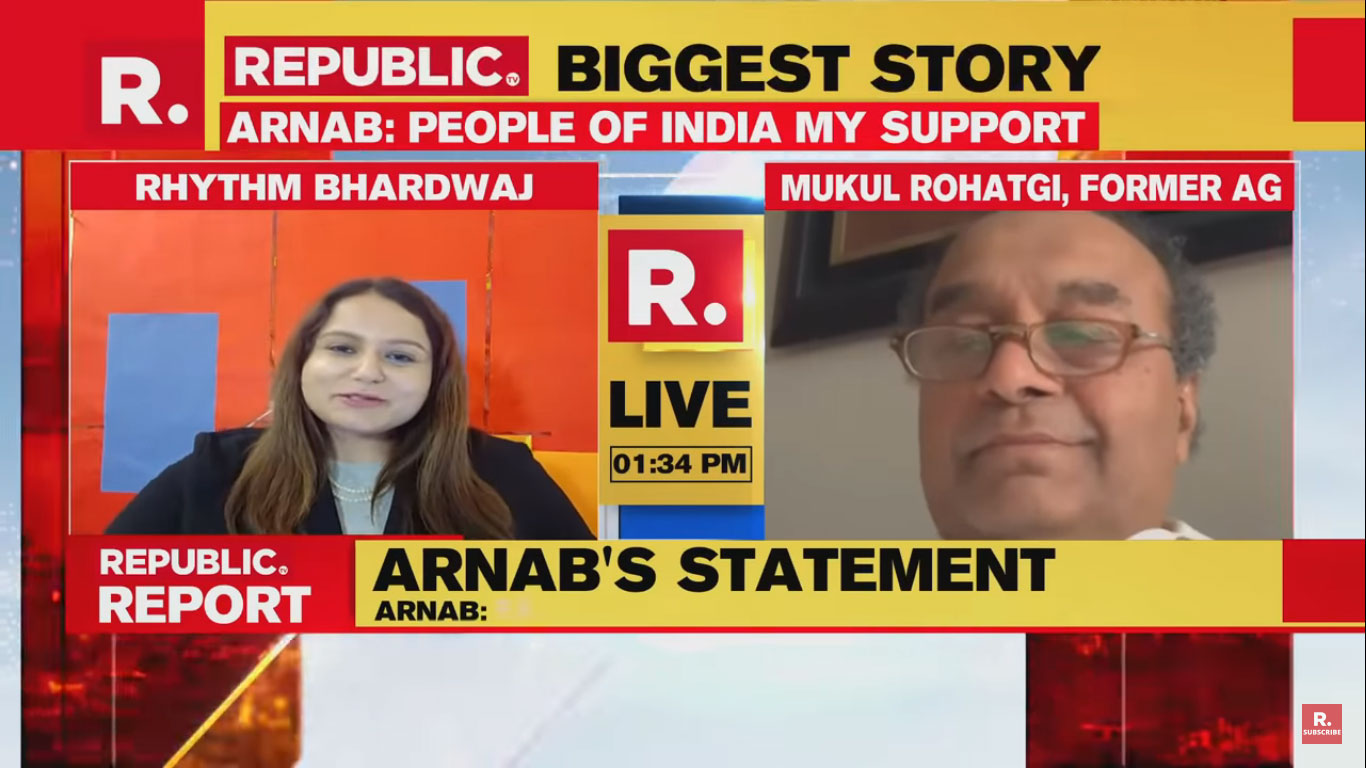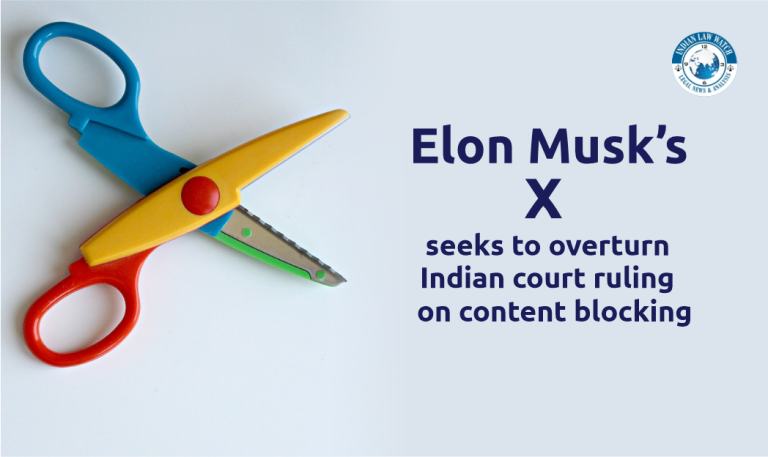Multiple FIRs & Freedom of Press: Arnab Goswami Judgment of Supreme Court

BACKGROUND OF THE CASE
Arnab Goswami who is the Editor-in-Chief of Republic TV initiated these proceedings on the ground that that multiple FIRs and criminal complaints have been lodged against him on the basis of the same cause of action, emanating from a programme which was telecast on Republic TV on 21 April 2020.
FIRs and criminal complaints have been lodged in the States of Maharashtra, Chhattisgarh, Rajasthan, Madhya Pradesh, Telangana and Jharkhand as well as in the Union Territories of Jammu and Kashmir. The jurisdiction under Article 32 has been invoked in view of the filing of FIRs and complaints in multiple jurisdictions, straddling several States.
While urging that the reference programme presented an analysis of an incident of mob lynching which took place at Palghar on 16 April 2020 in the course of which two persons were killed in the presence of personnel belonging to the police and the forest department.
One FIR has been also filed by Mr Goswami is in relation to an incident which took place at midnight, during the course of which, he and his spouse were obstructed by two persons and an alleged to have been subjected to an assault while returning home from the studio.
CHARGES IN FIR
| SECTION | HEADING | COGNIZABLE | BAILABLE//NON- BAILABLE | PUNISHMENT |
| 153A OF THE IPC | Promoting enmity between different groups on grounds of religion, race, place of birth, residence, language, etc., and doing acts prejudicial to maintenance of harmony |
´√ |
Non- Bailable | Non-Compoundable
Imprisonment for 3 years or fine or both |
| 295A OF THE IPC
|
Deliberate and malicious acts, intended to outrage religious feelings of any class by insulting its religion or religious beliefs. |
´√ |
Non- Bailable | Non-Compoundable
Imprisonment for 3 years or fine or both |
| 505 (1) OF THE IPC
|
Statements conducing to public mischief.
|
´Non-Cognizable |
Non- Bailable | Non-Compoundable
Imprisonment for 3 years or fine or both |
| 188 OF THE IPC | Disobedience to order duly promulgated by a public servant
|
´√ |
Bailable | Non-Compoundable
Imprisonment for 1 month to 6 months or fine or both |
| 290 OF THE IPC | Punishment for public nuisance in cases not otherwise provided for. |
´Non-Cognizable |
Bailable | Non-Compoundable
Fine |
| 153 B OF THE IPC | Imputations, assertions prejudicial to national-integration
|
´√ |
Non- Bailable | Non-Compoundable
Imprisonment for 3 years or fine or both |
| 120B OF THE IPC | Concealing design to commit an offence punishable with imprisonment. |
Subject to offence |
Bailable/Non- Bailable subject to offence | Non-Compoundable
Same as for abetment for an offence |
| 504 OF THE IPC | Intentional insult with intent to provoke breach of the peace. | ´Non-Cogmizable | Bailable | Compoundable
Imprisonment for 2 years or fine or both by the person insulted |
| 505 (2) OF THE IPC | Statement promoting enmity, hatred and ill will against classes. |
√ |
Non- bailable | Non-Compoundable
Imprisonment for three years or fine or both |
Section 66A of the IT Act: Punishment for sending offensive messages through communication service, etc. It shall be punishable with imprisonment for a term which may extend to three years and with a fine.
UNDERLYING PRINCIPLES STRESSED UPON
In the interest of ensuring the fair administration of criminal justice, a balance between the following governing principles was reasserted:
(i) The need to ensure that the criminal process does not assume the character of a vexatious exercise by the institution of multifarious complaints founded on the same cause in multiple States;
(ii) The need for the law to protect journalistic freedom within the ambit of Article 19(1)(a) of the Constitution;
(iii) The requirement that recourse be taken to the remedies available to every citizen in accordance with the Code of Criminal Procedure 1973;
(iv) Ensuring that in order to enable the citizen to pursue legal remedies, protection of personal liberty against coercive steps be granted for a limited duration in the meantime;
(v) The investigation of an FIR should be allowed to take place in accordance with the law without this Court deploying its jurisdiction under Article 32 to obstruct the due process of law; and
(vi) Assuaging the apprehension of the petitioner of a threat to his safety and the safety of his business establishment.
COURT DIRECTIONS
(i) Save and except for FIR No 238 of 2020 dated 22 April 2020, registered at Police Station Sadar, District Nagpur City, Maharashtra, all further proceedings arising out of and emanating from the remaining FIRs and complaints listed out in the petition shall remain stayed, until further orders;
(ii) FIR No 238 of 2020 dated 22 April 2020 shall stand transferred from Police Station Sadar, District Nagpur City, Maharashtra to the N M Joshi Marg Police Station, Mumbai. The petitioner will, however, cooperate in the investigation;
(iii) For a period of three weeks, the petitioner shall be protected against any coercive steps arising out of and in relation to the above FIR arising out of the telecast which took place on 21 April 2020;
(iv) The petitioner would, within the above period of three weeks, be at liberty to move an application for anticipatory bail under Section 438 of the Code of Criminal Procedure 1973 and to pursue such remedies as are available in accordance with the law. Such an application shall be considered on its own merits by the competent court;
(v) In addition to the personal security provided to the petitioner, if a request is made by the petitioner to the Commissioner of Police, Mumbai for providing adequate security at the residence of the petitioner or at the studio of Republic TV in Mumbai, such a request shall be expeditiously considered and, based on the threat perception, police protection shall be provided, if considered appropriate and for the period during which the threat perception continues.
LYNCHING: Act of killing someone without a legal trial.





